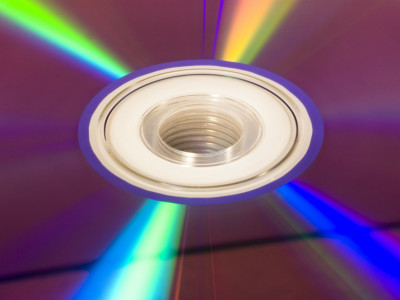A biological camera technology is developed that records images in DNA and stores them directly

DNA is also called the blueprint of life, and it is also considered one of the huge storage because it stores the genetic data necessary for survival. A research team led by Chue Lu Poe and others at the National University of Singapore devised a method called `` BacCam '' that records and stores light patterns in DNA.
A biological camera that captures and stores images directly into DNA | Nature Communications

Capturing the immense potential of microscopic DNA for data storage - College of Design and Engineering
Smile, You're on BacCam! DNA Stores Images from a Living Digital Camera
https://www.genengnews.com/topics/genome-editing/smile-youre-on-baccam-dna-stores-images-from-a-living-digital-camera/
Living digital camera: scientists capture light patterns in DNA for image storage
https://www.news-medical.net/news/20230706/Living-digital-camera-scientists-capture-light-patterns-in-DNA-for-image-storage.aspx
Digital data on the Internet is increasing rapidly and is expected to reach an unimaginable amount of 17.5 trillion GB by 2025. Therefore, DNA has been attracting attention in recent years as a storage that stores the ever-increasing amount of digital data, replacing conventional storage such as hard disks and SSDs.
``DNA, an important component of all living things on earth, stores genetic information that expresses a series of proteins involved in various life functions,'' Poe said. 1 gram of DNA is 215,000 terabytes. It is possible to store more data, which is equivalent to storing a total of 45 million DVDs.'
In addition, Chen Kai Lim, a research team member, said, ``DNA can be easily edited due to technological advances.In addition, DNA is more compact and durable than conventional storage, so it can be used for centuries. It is possible to store information for as long as

Developed by the research team, BacCam is a system that fuses various biological and digital technologies and uses biological components to bring technology equivalent to the functionality of a digital camera to DNA.
Up until now, images have been stored in DNA by processing the data of the captured image, writing it into DNA, and then analyzing the DNA to output the original image. The research team devised a genetic recombination enzyme ``

The research team has succeeded in recording pixel patterns such as the letters 'BACCAM' and illustrations of smiles in DNA using BacCam. They also reported that they succeeded in restoring the original data by
Also, in an experiment using the 'BACCAM' pixel pattern, it was found that the image was reconstructed with a high accuracy of about 94%.

Furthermore, the research team reported, ``We succeeded in simultaneously recording two different images using light of multiple wavelengths, red and blue, and saving and outputting them with high accuracy.'' It is possible to record multi-color images by combining a system that responds to blue light and a system that responds to red light.
In an experiment by the research team, an experiment was conducted in which the blue 'NUS' and the red smile pixel pattern were combined and recorded in DNA, or recorded while switching between the two patterns. As a result, it was shown that both methods can save and output with high accuracy exceeding 90%.

“The BacCam we devised is considered an important milestone in the integration of biological systems and digital devices,” Poe said. We have successfully created a 'living digital camera'.' ``Our research will not only lead to the development of further applications in DNA data storage, but will also enable the introduction of existing data recording techniques into a biological framework.''
'We hope that our research will lay the foundation for innovative technologies in recording and storing information,' said Poe.
Related Posts:
in Science, Posted by log1r_ut







